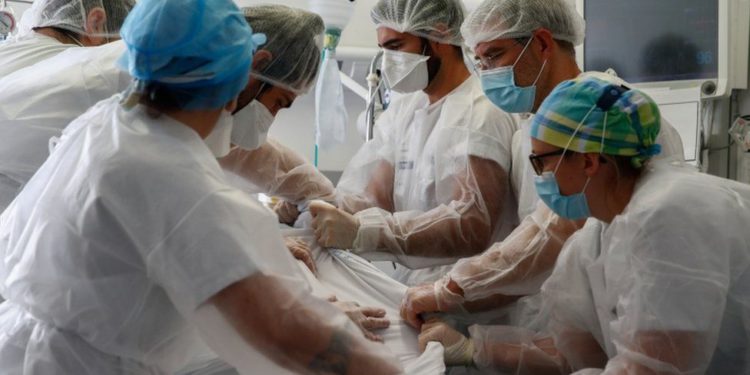The World Health Organization (WHO) has called on European countries to do more to curb a new variant of coronavirus that was first detected in the UK, reports the BBC.
“WHO Europe director Hans Kluge said tougher measures were needed to “flatten the steep vertical line” of rising cases in some countries. He said 22 European countries now have cases of the variant, calling this “an alarming situation.” First detected in November, the variant has driven a spike in cases in the UK. Its spread has concerned many European countries that have already imposed full national lockdowns to tackle a marked rise in infections during winter,” reads the article.
Health experts say the new strain does not differ from coronavirus in terms of severity or lethality, although it differs from the existing strain by high transmission rate.
They also rule out the possibility that vaccines will not be as effective against the variant.
However, Mr. Kluge said the “increased transmissibility and similar disease severity” of the variant does “raise alarm.”
“It is our assessment that this variant of concern may, over time, replace other circulating lineages – as seen in the United Kingdom, and increasingly in Denmark,” Mr. Kluge said on Thursday.
“Without increased control to slow its spread, there will be an increased impact on already stressed and pressurized health facilities.”
The article by the BBC discusses the epidemic situation in European countries and measures taken to slow down its spread:
“The WHO says more than 230 million people in Europe are living in countries under full national lockdown, with more expected to announce further restrictions soon. As of Wednesday, almost half of all European countries had recorded 150 new cases per 100 000 people over a seven-day period, according to the WHO. A quarter of all EU member states, the WHO says, are seeing very high incidence and strained health systems.
“The highest number of infections been recorded in Russia (3.2 million), the UK (2.8 million), France (2.7 million) and Italy (2.2 million), a tally by Johns Hopkins University says. The highest number of deaths have been recorded in the UK (78,000), Italy (77,000), France (66,000) and Russia (59,000), the tally shows.
“France lifted its national lockdown in December, but the government said the infection rate had not fallen sufficiently for further easing. On Thursday Prime Minister Jean Castex said restaurants, cinemas and museums would remain closed throughout January to slow the spread of the coronavirus. A nationwide nightly curfew was being extended until at least 20 January, Mr. Castex said.
“In Spain, government figures showed the total number of coronavirus infections surged past two million on Thursday. The health ministry announced another 42,360 new cases over the past 48 hours.
“Elsewhere, Germany has extended its nationwide lockdown until the end of January.
“Chancellor Angela Merkel warned that hospitals across the country were already overwhelmed, particularly intensive care units.
“In Italy, restrictions imposed over the Christmas break were extended until 15 January, while in Greece the government introduced a strict lockdown from 3 January to 11 January.
“Meanwhile, vaccines against Covid-19 are being rolled out across Europe, but at a pace that has been criticized as too slow in some countries,” reads the publication.
By Ana Dumbadze
Source: The BBC
Image: REUTERS














